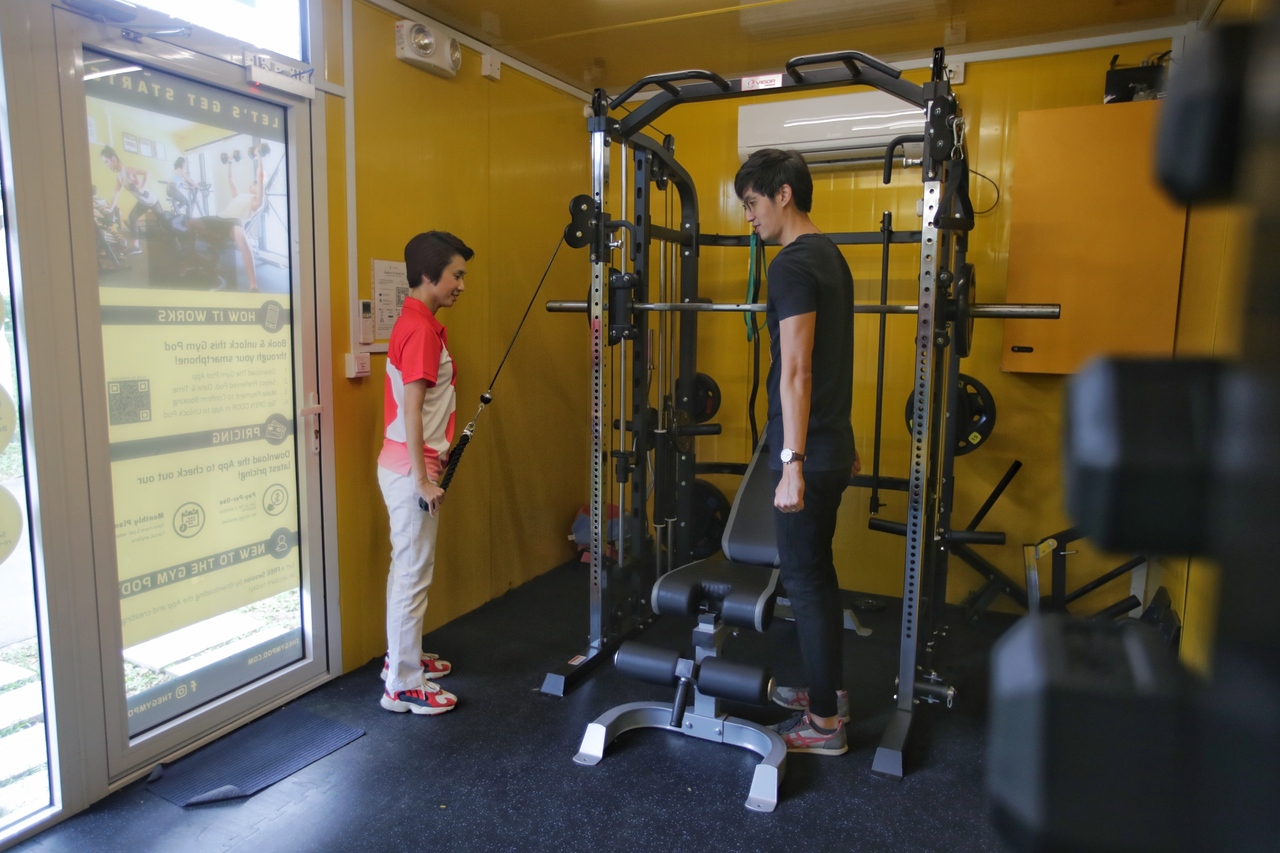Government committed to helping innovative business ideas come to fruition: Low Yen Ling
Sign up now: Get ST's newsletters delivered to your inbox

Minister of State for Trade and Industry Low Yen Ling with The Gym Pod founder Damian Chow at the gym.
PHOTO: GIN TAY
SINGAPORE - Innovative business ideas are an important driver of growth, particularly in the current economic downturn, said Minister of State for Trade and Industry Low Yen Ling.
To this end, the Government remains committed to providing resources and helping to bring these ideas to fruition, especially those that do not fit neatly into existing regulatory frameworks, she added.
She was speaking to reporters after a visit to The Gym Pod at Bishan-Ang Mo Kio Park on Friday (Aug 28).
The 24-hour unmanned container gym's latest expansion into two public parks in July was a result of help from the Pro-Enterprise Panel (PEP) under the Ministry of Trade and Industry (MTI).
The PEP, set up in 2000, collaborates with government agencies and businesses to streamline rules with the aim of reducing the regulatory burden.
Ms Low said that as the economy evolves amid the Covid-19 pandemic, more business models that cut across multiple domains might emerge.
"Each of these new business models with innovative business concepts may not fall neatly in any existing regulatory framework. It may cut across a few regulatory frameworks. So this is where the PEP will play a very important role," she said.
Since 2000, the PEP has received more than 2,000 business ideas and feedback on regulations.
Other successful examples that have come to fruition with the PEP's help include the Decathlon Singapore Lab that opened last year, and the Shipping Container Hotel that offers stays in unusual locations, launched earlier this year.
The Gym Pod founder Damian Chow said that without PEP's help, it would have had to talk to multiple agencies separately.
"It might have been a very long process because we don't know who to talk to. With PEP and MTI, it helped us to smooth out the communications and make this process much faster," he said.
He added that it took about nine months from evaluation of the two gyms in public parks to rolling them out, although there were some delays due to the coronavirus outbreak.
The Gym Pod was launched in June 2018 and now has eight gyms. Users - only one or two people are allowed at a time - can book sessions online and control gym facilities via a mobile app.
The other six gyms are located mainly in industrial estates.
Other Covid-19 precautions the gym has taken include requiring all users to complete a travel and sickness declaration form and scanning their temperature with a no-touch device before using the gym. It also applies self-disinfecting coatings to all equipment daily.
Since Singapore's phase two of reopening in June, the number of users has increased compared with pre-circuit breaker, said Mr Chow, 35.
"Our concept was meant for privacy, but fortunately it also caters for safe distancing because you're not sharing the same space with another person. Because of this, we saw our bookings go up after the circuit breaker, compared to before," he said.
While each pod was used for an average of 10 to 11 hours a day before the circuit breaker, that has increased to 14 to 16 hours per day now. The increase was also partly due to the gym's greater visibility at Bishan-Ang Mo Kio and Punggol parks, he added.
The Gym Pod aims to evaluate and launch gyms at three more parks in the next few months, and to open 100 gyms in the next two years.


